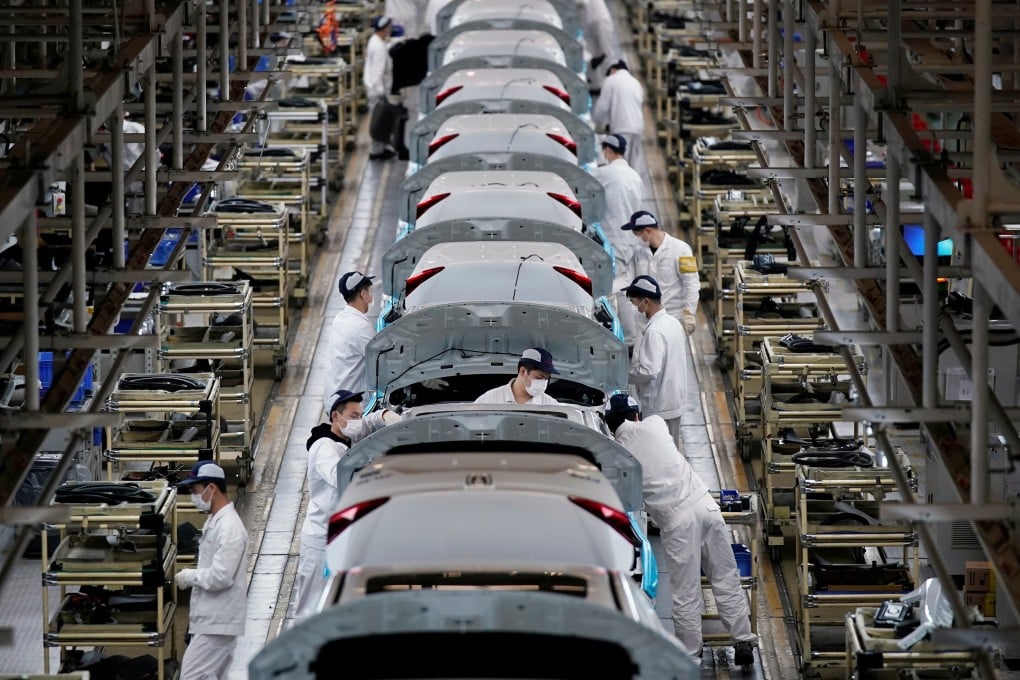Coronavirus: China’s industrial giants see profits collapse in first quarter of 2020
- From January to March, China’s industrial giants’ profits were down 36.7 per cent, with the energy and automotive sectors suffering huge drops
- Chemicals and ferrous metals processing were next worst hit, as China’s efforts to reopen the economy continue

Profits at China’s big industrial firms collapsed in the first quarter of the year, during the country’s unprecedented coronavirus lockdown.
Industrial firms saw profits fell by 36.7 per cent over the first three months, led by a massive 187.9 per cent collapse in the profitability of firms in the oil and gas industries. These firms saw a 28.5 billion yuan (US$4 billion) profit over the same period of 2019 fall to a 24.7 billion yuan loss.
Big companies in metal products, machinery and equipment sectors saw profits fall by 84.3 per cent. The automotive industry saw a 80.2 per cent profit drop, profits in the chemicals sector were down 56.5 per cent, while ferrous metal processing profits slid by 55.7 per cent over the first quarter.
Among China's 41 industrial sectors, all but two reported losses: tobacco and food processing.
Profits at state-owned industrial enterprises plummeted by 45.5 per cent, while those in the private-sector fell by 29.5 per cent.